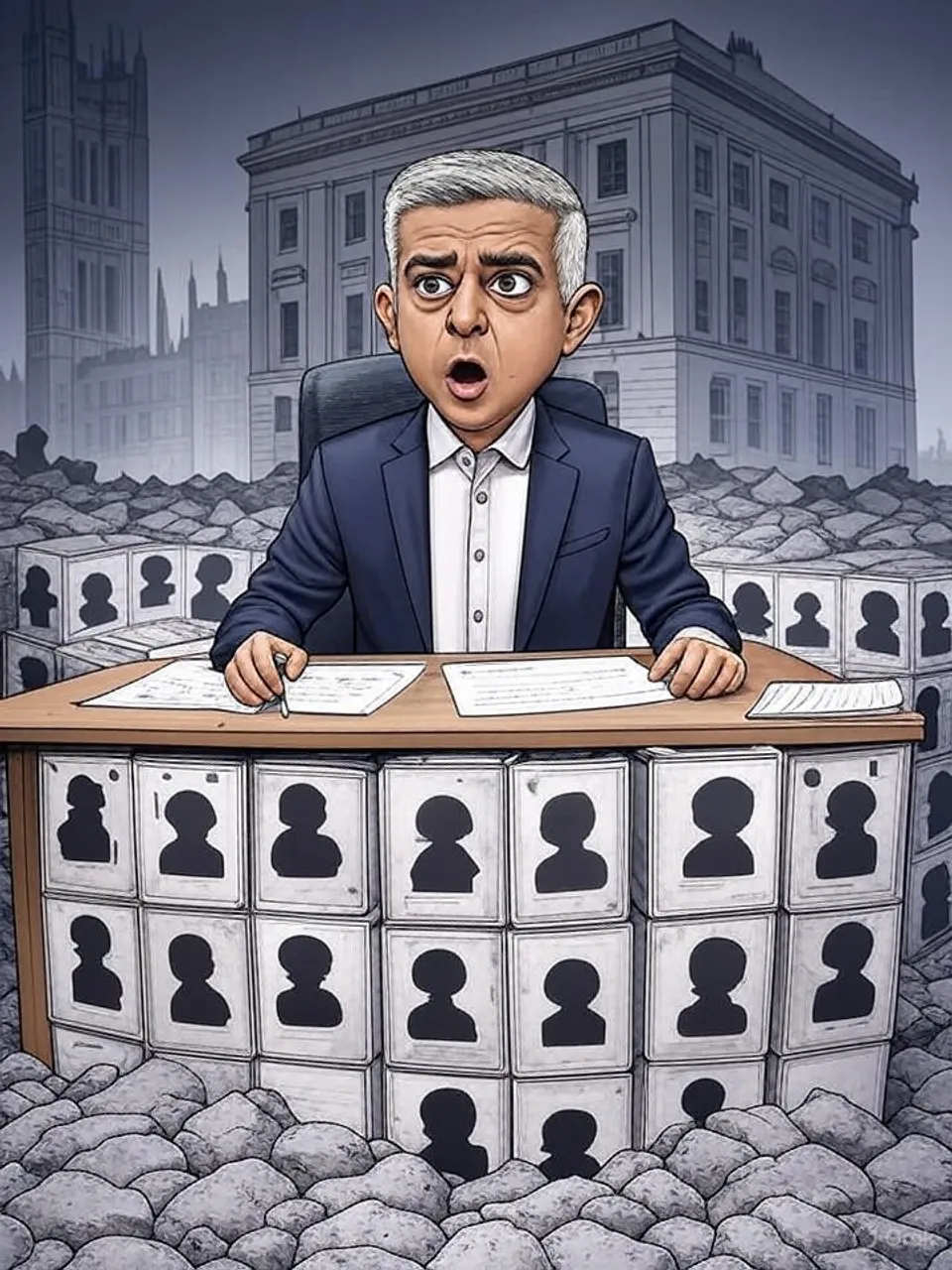London's Mayor Dismisses Grooming Gangs, Then Reviews 9,000 Cases

Public records contradict official denials, exposing years of institutional evasion
Sadiq Khan's assurances of no grooming gangs in London unraveled under investigation, revealing 9,000 Met Police cases for review and highlighting cross-party failures in child protection.
Commentary Based On
Express.co.uk
'I exposed Sadiq Khan's darkest secret that’s put him on the brink'
London’s Mayor Dismisses Grooming Gangs, Then Reviews 9,000 Cases
Public records reveal evidence of at least 11 potential grooming gang victims in London, contradicting Mayor Sadiq Khan’s repeated assurances that no such organized child exploitation existed in the capital. Khan’s denials persisted through assembly debates and media scrutiny, even as national efforts identified over 800 cases for review elsewhere. This gap exposes how official narratives prioritize deflection over disclosure, leaving vulnerable children unprotected.
In February, Conservative assembly member Susan Hall pressed Khan on grooming gangs, drawing a evasive response that redirected attention to drug-dealing networks. Khan’s office later claimed the mayor took the issue seriously, yet assembly records show he approved four Metropolitan Police inspection reports detailing patterns of group-based child sexual abuse without raising alarms. The mayor’s stonewalling aligned with Met Commissioner Sir Mark Rowley’s February statement that the force saw no significant organized exploitation.
An Express and MyLondon investigation shifted the dynamic. Journalists analyzed police inspection reports and witness statements from Judge Alexis Jay’s national inquiry, uncovering cases matching grooming gang criteria: multiple perpetrators targeting vulnerable girls in care or on streets, often involving ethnic minority networks. Experts like detective Maggie Oliver, who exposed Rochdale scandals, confirmed three cases as “typical” of such operations.
National context amplified the pressure. Home Secretary Yvette Cooper announced in June a grooming gangs inquiry and reviews of over 800 closed cases, expecting the total to exceed 1,000. Khan responded by asserting no London cases appeared in these reviews, a claim undermined when the Met later disclosed 9,000 potential cases under examination—more than the national figure from all other forces combined.
Whistleblower evidence deepened the revelations. Retired detective Jon Wedger provided notebooks from mid-2000s investigations into Haringey care homes, showing senior officers halted probes into child exploitation rings mirroring Rotherham’s failures. Wedger’s reports, submitted to prior inquiries, documented multiple operations on organized abuse, yet these vanished from public discourse until recent journalism revived them.
Institutional responses lagged behind the facts. Councils in 31 of 32 London boroughs denied grooming investigations via Freedom of Information requests, with Hounslow minimizing its single case as involving “one child.” The Met and Khan’s office dismissed the joint investigation as “politically motivated,” but within days, Commissioner Rowley admitted a “very significant number” of reviews during an assembly hearing—prompted by a Labour member’s sudden question.
This sequence traces a familiar institutional pathology. Denials from Khan, a Labour mayor since 2016, echo evasions by previous Conservative-led national governments during Rotherham and Rochdale scandals, where police and councils ignored evidence to avoid racial tensions. Cross-party continuity persists: Labour’s Cooper launched reviews only after external pressure from figures like Elon Musk, while Khan’s administration mirrored Met leadership in prioritizing image over action.
The human cost compounds across decades. London’s 9,000 cases suggest thousands of potential victims endured unchecked abuse, eroding community trust in institutions meant to safeguard children. Polling shows public confidence in the Met at historic lows, with only 52% of Londoners trusting police in 2023, down from 75% a decade earlier.
Accountability remains elusive. Khan faces no formal repercussions despite approving reports that flagged risks, and Rowley continues in post amid the reviews. This reflects broader UK governance: officials issue assurances, evidence contradicts them, inquiries follow scandals, but personnel advance without penalty—perpetuating cycles of failure.
Economic dimensions add insult. Grooming scandals drain public resources, with the Met’s review costing millions in overtime and legal fees, atop £2.5 billion annual policing budgets strained by unrelated crises. Victims require lifelong support, yet social care funding has fallen 20% in real terms since 2010, leaving at-risk children in under-resourced systems.
Social cohesion fractures further. London’s diverse population, with 40% born abroad, amplifies sensitivities around ethnicity in exploitation cases, yet denials fuel resentment and conspiracy narratives online. Viral clips of Khan’s assembly clash reached millions, widening divides that weaken civic bonds already tested by migration pressures and urban isolation.
The grooming gangs saga in London underscores systemic inertia. Institutions across political lines—Labour mayoralty, Conservative assemblies, bipartisan national oversight—repeat omissions that prioritize political expediency over evidence. Ordinary citizens bear the fallout: children exploited, families shattered, trust dissolved.
This episode cements the UK’s institutional decline. Where functional governance would mandate proactive vetting and transparent reporting, Britain’s systems deliver reactive damage control after journalistic intervention. Power shields itself, leaving public safety as collateral— a truth that demands reckoning, not reassurance.
Commentary based on 'I exposed Sadiq Khan's darkest secret that’s put him on the brink' by Zak Garner-Purkis on Express.co.uk.